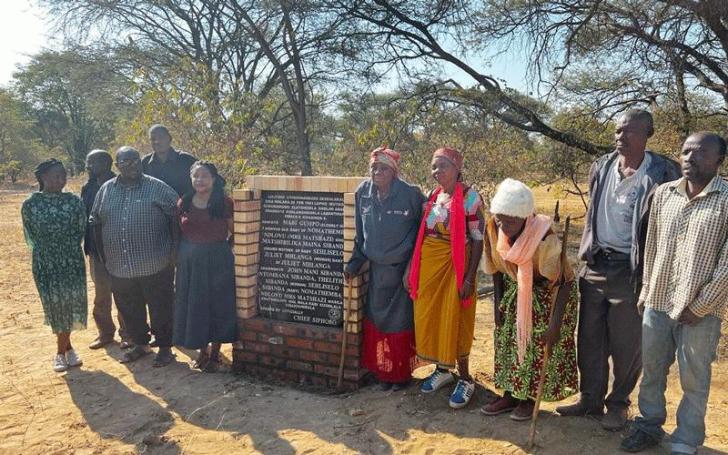News / National
Gukurahundi hearings under fire over lack of legal safeguards
17 Jun 2025 at 16:48hrs |
0 Views

The upcoming Gukurahundi outreach programme has sparked backlash from human rights advocates, who argue that the process lacks credibility due to the absence of a clear legal framework and independent oversight.
The government recently announced that the long-awaited hearings into the 1980s massacres - during which an estimated 20,000 civilians were killed in Matabeleland and parts of the Midlands - will begin on 26 June. However, restrictions placed on media access and the decision to have victims appear privately before panels of traditional leaders have raised alarm among civil society groups and survivors.
Appearing on This Morning on Asakhe, a current affairs programme hosted by the Centre for Innovation and Technology (CITE) on X (formerly Twitter), participants expressed deep skepticism about the structure and objectives of the process.
Mbuso Fuzwayo, Secretary-General of the advocacy group Ibhetshu LikaZulu, cautioned that the outreach risks repeating the mistakes of previous commissions that collapsed due to political interference and lack of transparency.
"We expect to hear the perpetrators' side of the story. If this is just about victims privately speaking to their chiefs, the process will fall short," Fuzwayo said. "Gukurahundi happened in communities, and it demands a community-based, public solution."
Echoing these sentiments, human rights lawyer Nikiwe Tshabalala criticised the programme as a "non-starter" in the absence of any enabling legislation to guide its scope, procedures, or outcomes.
"There is no law backing this. Without proper legal framing and inclusive public participation, the promise of justice becomes hollow," she said.
Tshabalala also questioned the government's silence on reparations for victims and survivors, a key aspect of transitional justice.
"I've not seen any commitment to compensation or redress. Are we not simply reopening old wounds without offering remedies?" she asked.
While government officials have maintained that the process is victim-centred and culturally appropriate by engaging local chiefs, critics argue that the approach is problematic. They fear it may retraumatise survivors and lacks the neutrality necessary to foster trust.
"This feels insincere. Who decides which cases matter and who gets heard?" asked Buhle, a listener who participated in the CITE discussion.
Fuzwayo added that many victims may not feel safe or confident confiding in their local chiefs, some of whom could be perceived as partisan or complicit.
"Making survivors approach their chiefs in private, without guarantees of impartiality or protection, is not healing - it's deepening their trauma," he warned.
As the June 26 start date approaches, civil society organisations are urging the government to reconsider the structure of the process. They are calling for legislation that ensures transparency, guarantees victim protection, and lays the groundwork for meaningful justice and reparations.
Without such measures, observers warn that the Gukurahundi outreach may be seen as yet another symbolic gesture rather than a substantive step towards national healing and accountability.
The government recently announced that the long-awaited hearings into the 1980s massacres - during which an estimated 20,000 civilians were killed in Matabeleland and parts of the Midlands - will begin on 26 June. However, restrictions placed on media access and the decision to have victims appear privately before panels of traditional leaders have raised alarm among civil society groups and survivors.
Appearing on This Morning on Asakhe, a current affairs programme hosted by the Centre for Innovation and Technology (CITE) on X (formerly Twitter), participants expressed deep skepticism about the structure and objectives of the process.
Mbuso Fuzwayo, Secretary-General of the advocacy group Ibhetshu LikaZulu, cautioned that the outreach risks repeating the mistakes of previous commissions that collapsed due to political interference and lack of transparency.
"We expect to hear the perpetrators' side of the story. If this is just about victims privately speaking to their chiefs, the process will fall short," Fuzwayo said. "Gukurahundi happened in communities, and it demands a community-based, public solution."
Echoing these sentiments, human rights lawyer Nikiwe Tshabalala criticised the programme as a "non-starter" in the absence of any enabling legislation to guide its scope, procedures, or outcomes.
"There is no law backing this. Without proper legal framing and inclusive public participation, the promise of justice becomes hollow," she said.
Tshabalala also questioned the government's silence on reparations for victims and survivors, a key aspect of transitional justice.
"I've not seen any commitment to compensation or redress. Are we not simply reopening old wounds without offering remedies?" she asked.
While government officials have maintained that the process is victim-centred and culturally appropriate by engaging local chiefs, critics argue that the approach is problematic. They fear it may retraumatise survivors and lacks the neutrality necessary to foster trust.
"This feels insincere. Who decides which cases matter and who gets heard?" asked Buhle, a listener who participated in the CITE discussion.
Fuzwayo added that many victims may not feel safe or confident confiding in their local chiefs, some of whom could be perceived as partisan or complicit.
"Making survivors approach their chiefs in private, without guarantees of impartiality or protection, is not healing - it's deepening their trauma," he warned.
As the June 26 start date approaches, civil society organisations are urging the government to reconsider the structure of the process. They are calling for legislation that ensures transparency, guarantees victim protection, and lays the groundwork for meaningful justice and reparations.
Without such measures, observers warn that the Gukurahundi outreach may be seen as yet another symbolic gesture rather than a substantive step towards national healing and accountability.
Source - CITE
Join the discussion
Loading comments…





























